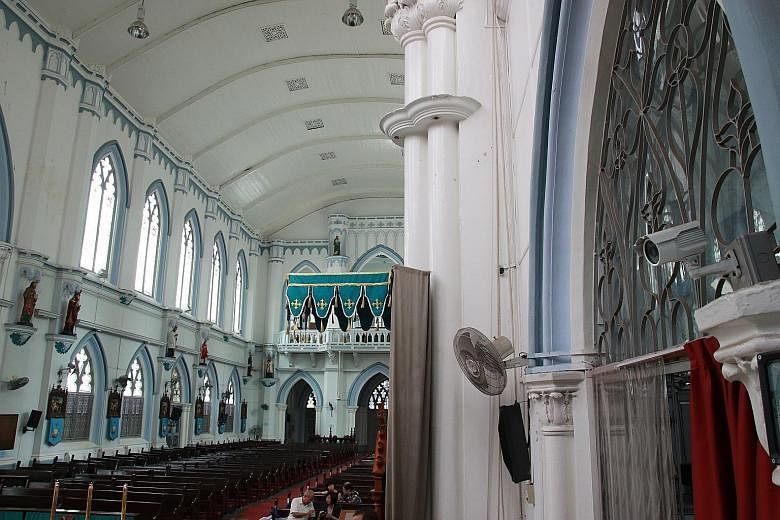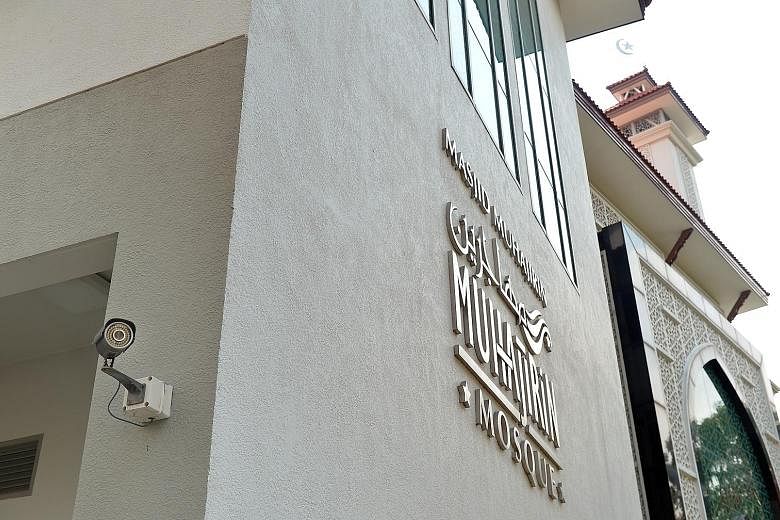Religious organisations are reviewing safety and security in places of worship islandwide, in the wake of a national initiative to better prepare Singapore residents for a terrorist attack.
The Catholic Archdiocese, the Hindu Endowments Board, the Islamic Religious Council of Singapore (Muis) and the Singapore Buddhist Federation have all pro-actively stepped up security measures at their premises, in line with the SGSecure movement.
The Catholic Church is going further, with plans to form an Archdiocesan Emergency Preparedness Taskforce to work out a centralised response. This includes training staff with basic emergency skills and improving standard operating procedures for emergencies.
The SGSecure national movement, officially launched by Prime Minister Lee Hsien Loong last month, aims to get all Singaporeans involved in the fight against terror.
Said the Catholic Archbishop's Office spokesman Andre Ahchak: "What we're doing is in line with the Government's call for all citizens, Catholic and non-Catholic alike, to be prepared to handle emergencies that may arise anywhere around them. It is our task therefore to review and to heighten our preparedness as an organisation and see how we can collaborate with public agencies to protect members of our society and train our people to handle emergencies."
Headed by Archbishop William Goh, the Roman Catholic Archdiocese of Singapore oversees a congregation of some 360,000 Catholics and has 31 churches spread across five districts in Singapore. Currently, individual parish churches are encouraged to contact the Singapore Civil Defence Force (SCDF) fire stations in their vicinity to work out emergency evacuation plans for their congregations. But concerted coordination from a central body from within the Archdiocese - working with agencies like the SCDF and the Singapore Police Force - will strengthen the safety measures, said Mr Ahchak.
Churchgoer and community volunteer leader Lionel de Souza said the review is timely in the wake of possible new threats such as " lone wolf attacks or sudden assaults by mentally unstable minds".
In July, an 86-year-old Catholic priest in a French church was knifed to death in a hostage incident. It was reported that Muslims across France attended Catholic mass after the murder as a gesture of solidarity. Closer to home, a church in Penang was attacked in 2014 when two Molotov cocktails were thrown into its compound.
Singapore's mosques have also enhanced their security measures. Director of mosques at Muis Mohd Helmy Isa said "mosques are fully on board with the SGSecure framework, and have long had measures in place to maintain community vigilance, cohesion and resilience".
Mosques are secured and locked after midnight, with closed-circuit TVs used to ensure vigilance at all times. They are also well plugged in to their neighbourhood and grassroots organisations, as well as the Inter-Racial and Religious Confidence Circles (IRCCs), he added.
The Hindu Endowments Board said while existing security measures are in place at the four temples under its purview, it welcomes a review which will promote greater security consciousness among its devotees. "Each temple will work with the authorities such as the police and SCDF, and local grassroots and IRCC to deal with security-related contingencies. The board endeavours to provide a safe and secure place of worship for our devotees ."
The Singapore Buddhist Federation president, Venerable Seck Kwang Phing, said temples here have stepped up awareness through talks and circulars to underscore the SGSecure message, among other existing safety and security measures in place.
Meanwhile, the National Council of Churches of Singapore (NCCS) will be holding a closed-door meeting with Deputy Prime Minister Teo Chee Hean next week on SGSecure. "All key leaders of churches, denominations and church-related agencies will be attending. As you can see, NCCS is taking this matter seriously, " said its general secretary, Rev Dr Ngoei Foong Nghian.



